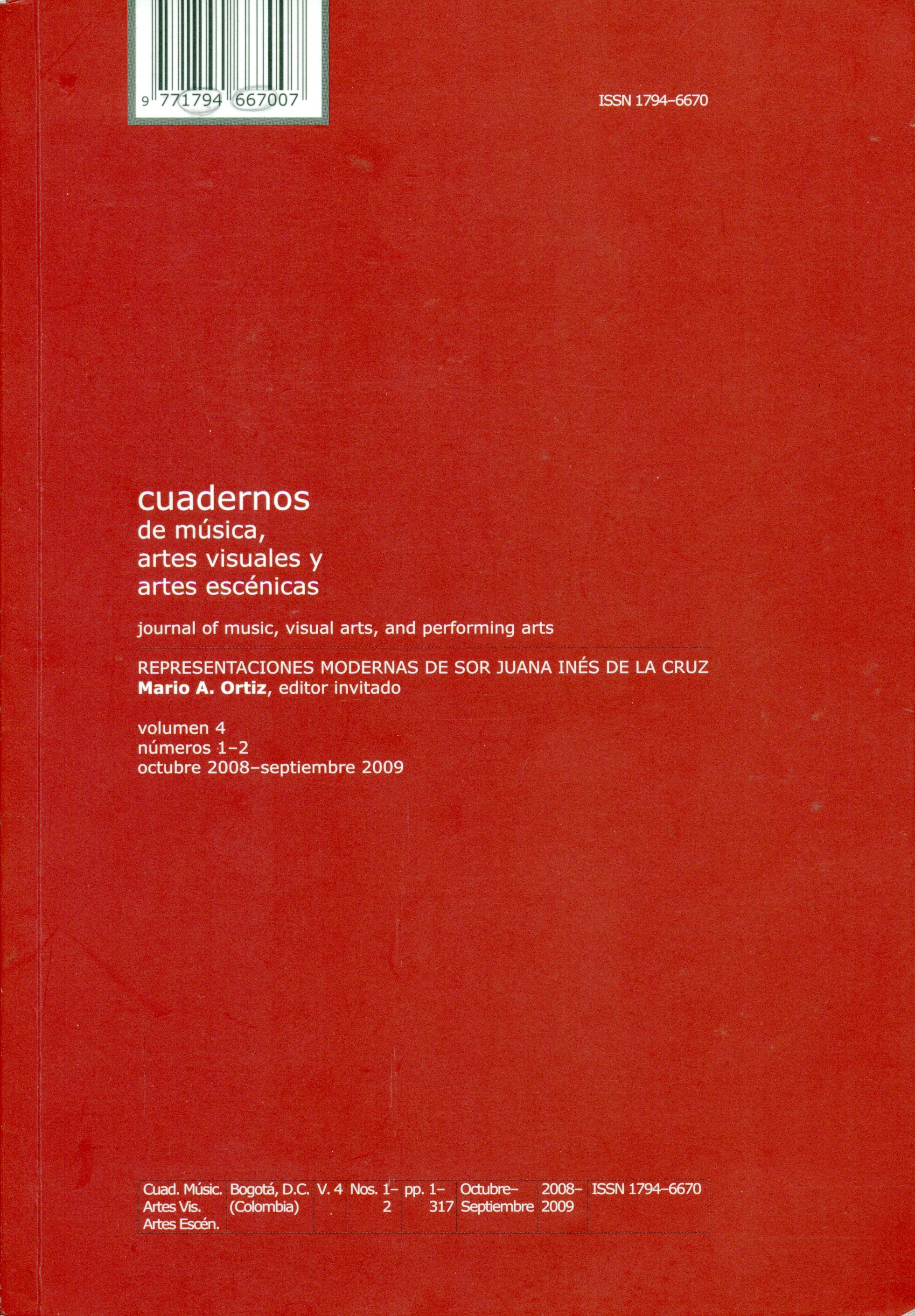Abstract
The image of Sor Juana as tragic heroine, based on her renunciation of secular letters in the last years of her life, has dominated biographical re–creations in novels and film. They follow the classic operatic plot, in which the destruction of queens and courtesans seems an inevitable result of their transgressive desires. As Catherina Clément has observed, “the emotion is never as poignant as when [the voice] is lifted to die.” In the case of Sor Juana, her desires have been represented as sexual as well as intellectual challenges to authority. By focusing on her silence as patriarchal retribution, we risk losing the eloquence and diverse registers of her voice. There are, however, other songs, even in contemporary operas like those by Daniel Crozier and Peter Krask (With Blood, With Ink, 1993) and by Carla Lucero and Alicia Gaspar de Alba (Juana, in progress). Music, as the most abstract of the arts, offers us other interpretations of Sor Juana’s achievement. This article analyzes music that responds to Sor Juana’s poetry with voice and diverse instrumental combinations: Marcela Rodríguez’s Funesta: Seis arias sobre textos de sor Juana; John Eaton’s Sor Juana’s Dreams, Sor Juana Songs, and Tocotín; John Adams’s Nativity Cantata, El Niño, which includes two villancicos; as well as the two contemporary operas.This journal is registered under a Creative Commons Attribution 4.0 International Public License. Thus, this work may be reproduced, distributed, and publicly shared in digital format, as long as the names of the authors and Pontificia Universidad Javeriana are acknowledged. Others are allowed to quote, adapt, transform, auto-archive, republish, and create based on this material, for any purpose, provided the authorship is duly acknowledged, a link to the original work is provided, and it is specified if changes have been made. Pontificia Universidad Javeriana does not hold the rights of published works and the authors are solely responsible for the contents of their works; they keep the moral, intellectual, privacy, and publicity rights.
Approving the intervention of the work (review, copy-editing, translation, layout) and the following outreach, are granted through an use license and not through an assignment of rights. This means the journal and Pontificia Universidad Javeriana cannot be held responsible for any ethical malpractice by the authors. As a consequence of the protection granted by the use license, the journal is able to publish retractions or to correct information already published. Publishing contents in this journal does not generate royalties for contributors.


